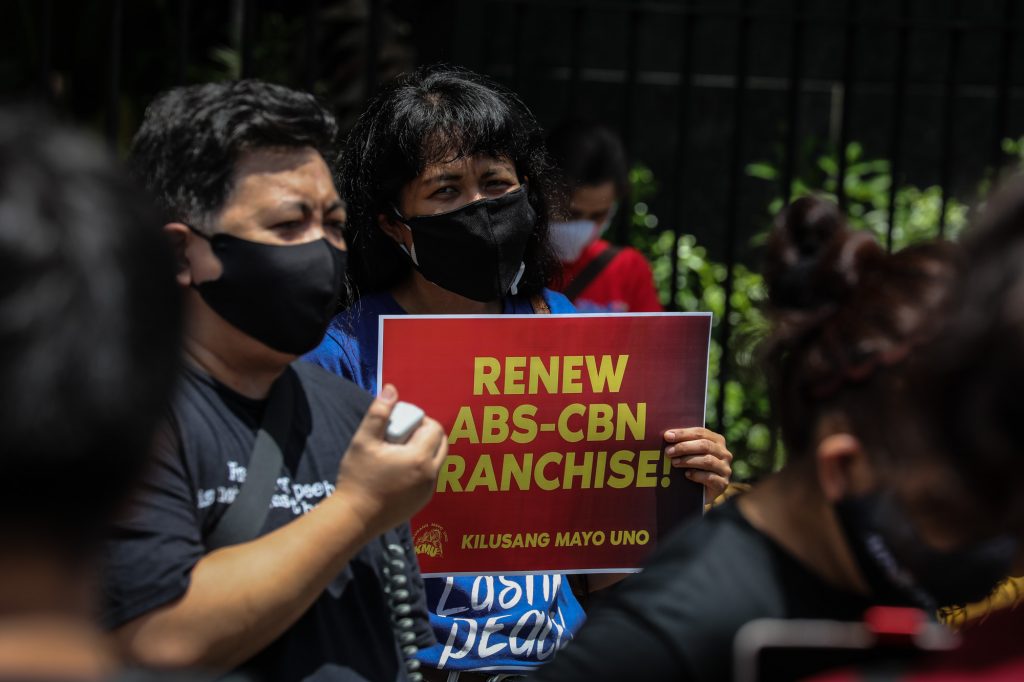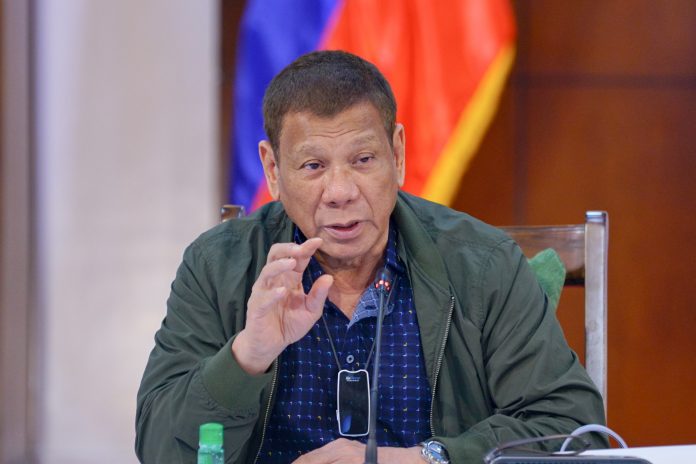President Rodrigo Duterte has defended the new anti-terrorism law he signed last week by using the “only the guilty are afraid” card.
“Don’t be afraid if you’re not a terrorist,” said the president in a pre-recorded message that aired past midnight of July 8, hours after police arrested one of the leaders of women’s group Gabriela based on what lawyers’ described as a “trumped-up” murder charge.
Duterte cited the need to protect the country from groups that blow up churches or sabotage critical installations. But his first mention of potential terrorist acts included the more generic crime of wanting to destroy or topple the government.
Critics of the new law, including four groups that have filed legal challenges with the Supreme Court warned, that claimed “safeguards” covering constitutional rights, like free expression and assembly, can be skirted if members of an anti-terror council see motives that advance terrorism.
“The law is bad because the interpretation of the intention of one’s act is variable,” warned the National Union of Lawyers of the Philippines.
Former Senior Associate Justice Antonio Carpio said the new law’s provisions bring the country “permanently under a situation worse than martial law.”
Most of the legal suits focus on a small executive branch council taking over judiciary functions to issue arrest orders outside of existing legal provisions on warrantless arrests.
The new law also allows the government to detain suspects for as long as 24 days without charges.
Carpio warned that the vague, broad definition of terrorism would have a “devastating effect” on freedom of expression.
New threat against media
At the same briefing, on the eve of a scheduled congressional vote on the fate of the shuttered broadcast television giant ABS-CBN, Duterte ranted and hurled threats against journalist Maria Ressa.
Angered by global support for the chief executive officer of Rappler, a digital news outfit, Duterte attacked Ressa as a “fraud.”
He also gloated about the consequences for “bright-bright girls,” a clear reference to the cyber-libel guilty verdict handed down on Ressa and a former researcher of Rappler.
Alluding to Rappler’s investigative reports on government corruption, Duterte warned that officials were compiling information on Ressa and would use it “some day.”
Aside from Rappler, Duterte has targeted ABS-CBN, the country’s largest network, several times issuing vows to shove it off the airwaves.
Congress sat on bills seeking an extension to the network’s franchise and the government closed its free service in May, followed a month after with closure notices on its digital and satellite offerings.
The House of Representatives has ended hearings on a new franchise for ABS-CBN but Duterte’s allies insisted new operations have to conform with “reforms” that, government critics claim, could make news outfits into government propaganda arms.

Drug war to the countryside
Various senior security officials have peddled the argument that only terrorists are opposed to the new law, although an online petition by the political youth party Kabataan has nearly a million signatures.
Red-tagging of legal organizations, journalists and individuals have spiked in 2020, with officials challenging targets “to prove” they are not communist terrorists.
On July 8, former national police chief and now senator Ronald de la Rosa linked the anti-terror law to Duterte’s drug war, which has officially killed close to 6,000 mostly poor suspects.
De la Rosa claimed Manila’s fleeing drug lords fled to the southern island of Mindanao in 2016 to hide with groups linked to the so-called Islamic State.
“We have observed that there seems to be a symbiotic relationship between the drug lords and the terror groups, especially here in Mindanao,” he said in a broadcast interview.
“These drug lords, they are feeding the terror groups with drug money and in return, these terror groups are providing these drug lords with protection and safe haven,” said De la Rosa.
He said the anti-terror law will have an impact on the drug situation because of its “symbiotic relationship.”
Earlier, groups in Muslim Mindanao urged Duterte to veto the bill.
The Bangsamoro regional parliament unanimously passed a resolution urging a review of the measure, citing issues of vagueness.
Bangsamoro Member of Parliament and Chief Minister Ahod “Al Haj Muraj” Ebrahim, former chairman of the Moro Islamic Liberation Front, said they are fighting terrorism are but worried over the potential human rights violations.
Noting the long history of persecution, human rights violations, and discrimination suffered by the Bangsamoro people, Ebrahim said he was “alarmed by the language and foreseeable consequences” of the law.
“As the leader of a political entity born out of the struggle against injustice and oppression, it is my moral duty to speak out in order to ensure the measures intended to address terrorism will not be used as a means to subvert the fundamental rights and freedoms of individuals, in general, and normalize abuse and discrimination against the Bangsamoro, in particular,” he said.
After Duterte signed the bill into law, the new Muslim Mindanao autonomous regional government asked for a seat in the anti-terror council to ensure protection of minority rights.









